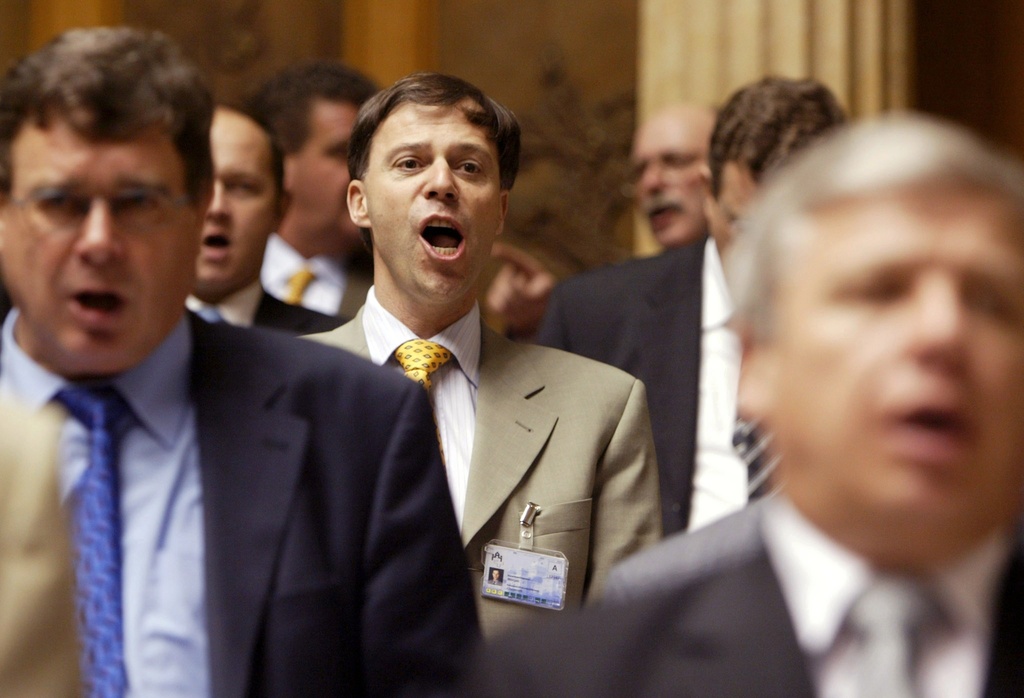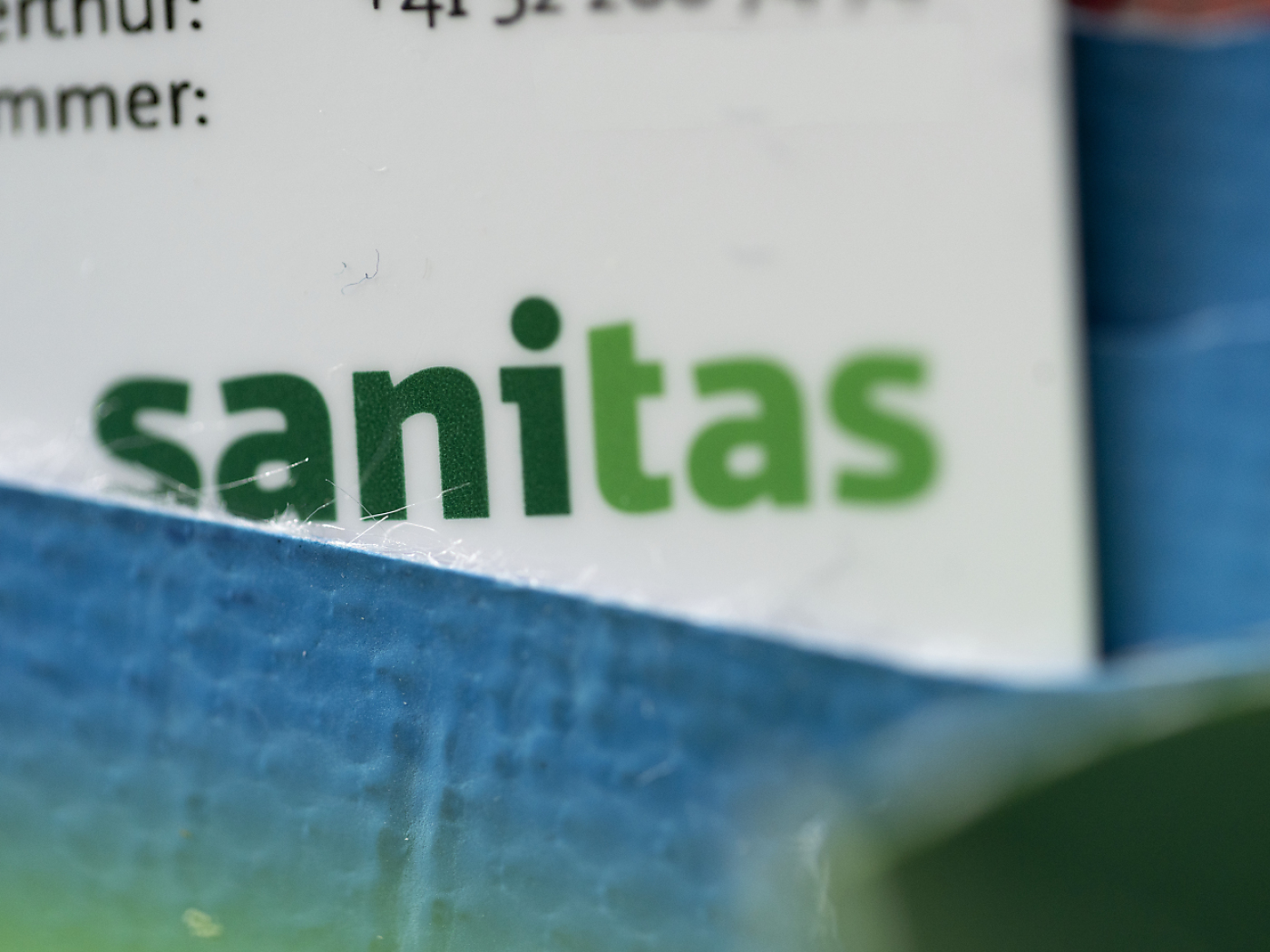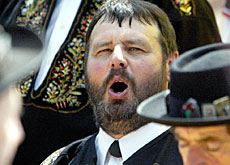National Anthem continues to cause discord

The Swiss National Anthem, which will be sung around the country as part of Swiss National Day celebrations, only became the country’s official anthem 30 years ago.
Critics say the song, composed 170 years ago, is “too 19th century” and ignores women. The population appears to have mixed views – and not everyone seems to know the words.
The anthem, which starts with the words “Radiant in the morning sky”, received the official stamp of approval on April 1, 1981. Before that it had been the provisional anthem since 1961.
But the actual composition of Swiss Psalm, as it is known, dates back much further, to 1841 – rounding off a “triple anniversary” of sorts for the song this year.
The original handwritten manuscript, by the Uri Catholic priest and composer Alberich Zwyssig, can be found in the Swiss National Library, which just posted a copy online.
“The tune was written for a psalm but when Zwyssig got a text celebrating Switzerland from a friend, he adjusted it to go with the text,” library spokesman Hans-Dieter Amstutz told swissinfo.ch.
By 1843 four-verse song, with words by Leonhard Widmer of Zurich, was being performed at the Swiss Federal Choir Competition in Zurich, he said. It was later translated from the original German into French and Italian, as well as into two idioms of Romansh.
Anthem rival
“So before it became the anthem it was a song that was well known all over the country. It’s nothing artificial,” said Amstutz.
Numerous attempts were made between 1894 and 1953 to have it declared the official anthem, but the government turned it down, arguing that this should be decided by the public and not the authorities.
A further problem was posed by the song “When you call, Fatherland” which was traditionally performed at political and military ceremonies. It was, however, sung to the same tune as the British national anthem “God Save the Queen”, sometimes causing diplomatic embarrassment.
This led to the Swiss Psalm, considered to be fully Swiss, being eventually declared the provisional and later the official anthem.
Identity
Nowadays, the anthem seems to provoke quite mixed feelings.
“It’s part of our identity and also part of our history, also how the anthem became the national anthem as a result of a long process,” Martin Baltisser, secretary general of the rightwing Swiss People’s Party, told swissinfo.ch.
“This is important to our country and to what we are.”
However, a telephone survey carried out last month by market researchers DemoSCOPE found that almost half, 44 per cent, of respondents did not know the words of the first verse.
In an anecdotal poll, conducted by swissinfo.ch among friends and acquaintances, most Swiss admitted they only knew part or, at best, all of verse one.
And while some enjoyed the melody and found it uplifting, others found the words “too 19th century”.
No women
It was this lack of modernity that irked centre-left Social Democrat parliamentarian Margret Kiener Nellen, who in 2004 introduced a parliamentary motion to have the words changed, especially because they fail to address women.
She faced resistance and later withdrew her motion. A second attempt in 2008, to have the words decided by a competition, was rebuffed.
Kiener Nellen told swissinfo.ch that the recent political atmosphere had been marked by a move to the right, and therefore was “not inspired by a big spirit of reform”.
In particular, the centre-right Christian Democrats, with Catholic roots like the song, did not approve of any change.
God, Alps, weather
“It is a psalm that praises God and talks about the Alps and the weather and therefore could apply to any of the five alpine countries here in the centre of Europe,” Kiener Nellen told swissinfo.ch.
“Just the fact that there is the word Swiss – in the German in the masculine form – that’s the only thing making it look like a Swiss Psalm.”
She would like to see a text showing the country’s geographical and cultural diversity, and highlighting it as a crossroads in Europe. It should also be shorter, more easy to understand, less religious and appeal to everyone, she argues.
The topic does remain a hotly debated one in parliament. A People’s Party motion to sing the anthem at the beginning of every parliamentary session as a sign of patriotism was rejected in 2009.
But last year it was decided that the national anthem’s music should open parliament’s four-year legislative term in a bid to underline the Swiss Psalm’s cultural importance.
December 5 will mark the first time it will be played. It will, however, be up to the parliamentarians if they want to sing along.
More than 700 years ago, the inhabitants of Uri, Schwyz and Unterwalden signed a contract of mutual aid and protection, the Federal Charter, now considered to be Switzerland’s deed of foundation. This oath, said to be taken on August 1, 1291 on the Rütli meadow overlooking Lake Lucerne, was mainly an act of rebellion against the ruling Habsburgs.
The National Day on August 1 was, however, only instituted in 1891 to commemorate the 600th anniversary of the Swiss Confederation. The annual celebration was introduced in 1899, mainly at the insistence of the Swiss living abroad who, seeing the national days already celebrated in other countries, also wanted a special day.
For decades after that, the national day, however, was just an ordinary holiday and only some cantons declared the afternoon or the whole day as an official national holiday. A popular vote – with 83.3% approval – in 1993 made the event an official national holiday.
Celebrations are now held across the country, in which the anthem is sung. It exists in four versions: German, French, Italian and Romansh.
(Source: ch.ch)

In compliance with the JTI standards
More: SWI swissinfo.ch certified by the Journalism Trust Initiative














You can find an overview of ongoing debates with our journalists here . Please join us!
If you want to start a conversation about a topic raised in this article or want to report factual errors, email us at english@swissinfo.ch.